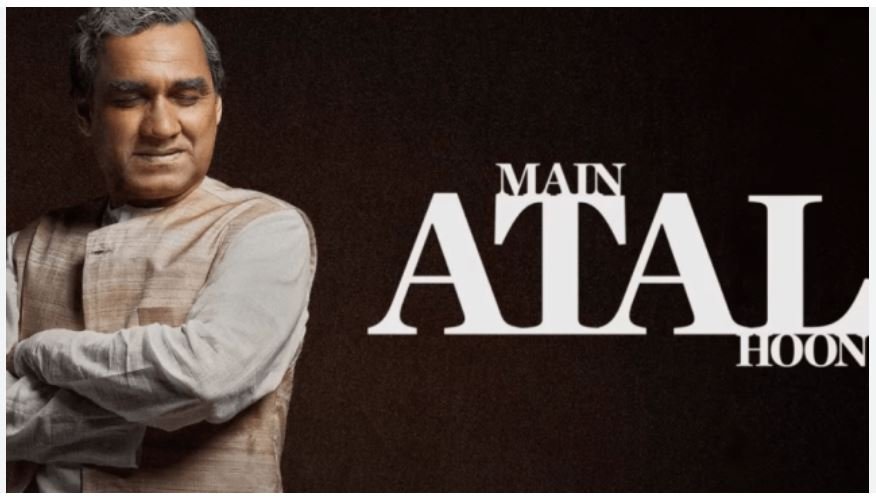Main Atal Hoon uses large brushstrokes to depict the vibrant personality of Atal Bihari Vajpayee; it is largely a gushing tribute and hardly an assessment. The movie offers a fantastic opportunity to comprehend the kind foundation that supported the ascent of right-wing politics in India, and it is based on journalist Sarang Darshane’s biography of the former prime minister. Vajpayee, a young poet who grew up by the Yamuna, decides to focus on the suffering endured by the laborers who built the Taj Mahal, an enduring symbol of love. A tea vendor tells a young Vajpayee that he listened to Jawaharlal Nehru’s address on the day India gains independence, but he was unable to hear a word because it was all in English.
Over time, Vajpayee’s voice has become more and more representative of an alternate vision of India. But after a compelling beginning, the story of the poet-politician who is equally adept with a lathi and a pen settles down to a dry compilation of Vajpayee’s accomplishments and speeches that are readily accessible on the Internet.
For the most part, it’s still a broad view, flavored with unreserved praise for the popular leader who stated that supporting Hindutva ideology and being a liberal democrat are not mutually exclusive. It barely reveals to us how the conservative mind got started and how his worldview developed. Instead, it decides to be cautious. It is unclear what Vajpayee considered Gandhi. His close friend Sikandar Bakht, his ability to forge friendships with people from different political backgrounds, and the fact that some of his progressive ideals encountered resistance within the Rashtriya Swayamsevak Sangh (RSS), his parent organisation, are all left out.
Watch Trailer here
Pankaj Tripathi makes a valiant effort to capture the captivating essence of Vajpayee. Similar to the former prime minister, Tripathi is a skilled orator who can captivate an audience. He portrays Vajpayee’s equanimity and steady determination in the midst of a crisis so well that even his detractors have compared him to Teflon-coated. This is in addition to his aging-related changes in mood and demeanor. Strangely, Tripathi hasn’t gained weight to portray an aging Vajpayee, but for the most part, it doesn’t affect how well he performs.
Vajpayee’s scathing indictment of the Congress’s anti-democratic practices rules the story, but his graciousness in recognizing Nehru’s contribution also makes an appearance. It brings back memories of a more permeable ideological difference. The update is welcome since the movie unintentionally offers some tasty allegories in which Vajpayee, the reputable opposition figure, confronts authority. The avalanche of his scathing remarks following the Emergency, in which he accuses Indira Gandhi of crony capitalism and power hubris, seems pertinent in the present.

